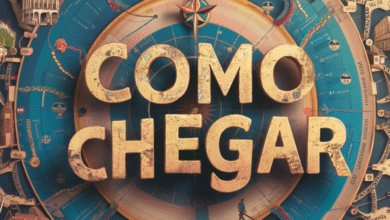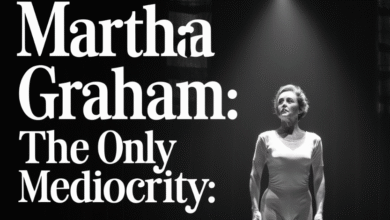US20140197169A1: Systems and Methods for Associating Mobile Devices

US20140197169A1 is a patent application that focuses on systems and methods for associating mobile devices using environmental data. This technology enables mobile devices to identify and link themselves based on shared environmental conditions. The system proposes a novel way to determine whether devices are in the same physical context by analyzing surrounding signals and environmental parameters, which can be used for proximity detection, device pairing, location-based services, and social networking functionalities.
The invention aims to solve existing challenges in peer device detection by removing the need for direct communication or GPS-based location verification, offering a more passive, yet intelligent solution for device association.
Core Concepts and Claims of US20140197169A1
1. Device Association Based on Shared Environmental Data
The system determines that two or more mobile devices are co-located or within a common environment based on similarities in sensed environmental data, such as:
-
Audio signals
-
Magnetic field strengths
-
Light levels
-
Barometric pressure
-
Wi-Fi or Bluetooth signals
Each mobile device gathers its own environmental context and sends it to a central server or processing module that performs correlation analysis. When the data matches within a specified threshold, the devices are considered to be co-located and are associated accordingly.
2. Use of Correlation and Time Windows
The system defines time-based windows within which data is collected and compared. This reduces noise and allows for a dynamic and adaptive method to measure environmental similarity. It uses techniques such as:
-
Cross-correlation
-
Time alignment
-
Similarity scoring
This provides a probabilistic approach to location inference and contextual device matching.
3. Privacy and Anonymity Considerations
One of the innovative aspects of the patent is its emphasis on user privacy. Environmental data is non-identifying in nature. Unlike GPS or user credentials, audio signatures or ambient light readings are less intrusive. Data may be processed in a way that avoids storing or transmitting personally identifiable information (PII), enabling more privacy-preserving device discovery.
Applications and Use Cases of Environmental-Based Device Association
1. Social Networking and Proximity-Based Interactions
By associating mobile devices based on shared environments, applications can offer contextual friend suggestions, real-time chat options, or event-based interactions. For example, attendees at a concert could be linked in-app without needing to manually search for each other.
2. Targeted Advertising and In-Store Engagement
Retailers could use the technology to determine when customers with enabled apps are physically inside or near their stores. This allows for real-time coupon delivery, product recommendations, or footfall tracking without relying on GPS.
3. Enhanced Security and Authentication
The method can also serve as a layer of device-based authentication, allowing access to resources or secure networks only if two or more devices are confirmed to be in the same environment. For instance, employees may need their mobile devices to be present in a specific room to access sensitive data.
4. Smart Home and IoT Device Coordination
In smart environments, mobile devices could automatically associate with IoT hubs, smart TVs, or lighting systems by matching environmental inputs. This offers seamless pairing without needing manual setup, enhancing user experience and automation.
Technical Architecture and Components
1. Environmental Data Collectors
Each mobile device is equipped with various sensors and modules:
-
Microphones for audio sampling
-
Ambient light sensors
-
Magnetometers
-
Wi-Fi/Bluetooth modules
-
Barometers
These components capture environmental data over defined intervals.
2. Local Processing and Data Packaging
Before transmitting, devices may perform pre-processing such as:
-
Data smoothing
-
Noise reduction
-
Encoding into feature vectors
This reduces bandwidth and processing demands on the central server.
3. Server-Side Correlation Engine
A central unit receives input from multiple devices and performs:
-
Signal matching algorithms
-
Time-series analysis
-
Statistical thresholds
The engine generates association confidence scores, allowing systems to act upon strong matches with high precision.
Advantages Over Traditional Methods
1. No Need for GPS or Beacons
Many location-based systems rely on GPS, which fails indoors or consumes significant power. US20140197169A1 bypasses this limitation by depending on passive environmental context, which works effectively indoors and outdoors.
2. Improved Battery Efficiency
Using low-power sensors (e.g., microphone, barometer) rather than continuous GPS or Bluetooth scans ensures extended battery life, which is critical for mobile users.
3. Scalability and Flexibility
The system can operate across multiple environments and device types. Whether in a dense urban area, rural field, or an enclosed building, the methodology adapts based on whatever environmental data is available.
4. Cross-Platform Compatibility
Since it relies on universal sensors present in most mobile devices, the method can be applied on Android, iOS, wearables, or specialized devices, without proprietary hardware.
Patent Claims Summary
US20140197169A1 contains detailed claims, the most notable being:
-
Claim 1: A method for associating mobile devices based on environmental data similarity.
-
Claim 7: Real-time association using time-aligned audio fingerprints.
-
Claim 13: Association determination without user intervention.
-
Claim 18: Secure authentication between devices based on co-location.
-
Claim 21: Multi-device environment modeling for crowdsourced environmental mapping.
These claims outline a broad scope of functionality, ensuring legal protection for multiple implementations of the invention.
Challenges and Considerations
While the technology is robust, there are challenges to address:
-
Data Noise and Accuracy: Variability in sensor quality across devices may affect results.
-
Environmental Ambiguity: Similar environmental data could exist in different locations (e.g., offices with similar lighting and sounds).
-
Network Latency: Real-time matching requires fast data processing and minimal transmission delays.
These can be mitigated with machine learning models, data normalization, and edge computing strategies to reduce server load.
Future Potential and Development Directions
As devices become more sensor-rich and edge processing evolves, the system described in US20140197169A1 can evolve into a foundational layer for ambient intelligence, enabling devices to sense, interpret, and respond to human environments with minimal explicit commands.
Integrations with AI will allow the model to understand not just environmental similarity but also user behavior, emotional states, and context prediction, opening new doors in augmented reality, context-aware apps, and secure device ecosystems.
Conclusion
US20140197169A1 introduces a transformative approach to device association by leveraging ambient environmental data. Its real-world applications span across industries from secure authentication to contextual marketing and social connectivity. As we move into an era where contextual computing dominates user experience, this patent forms a critical blueprint for building the next generation of intelligent, responsive systems.



